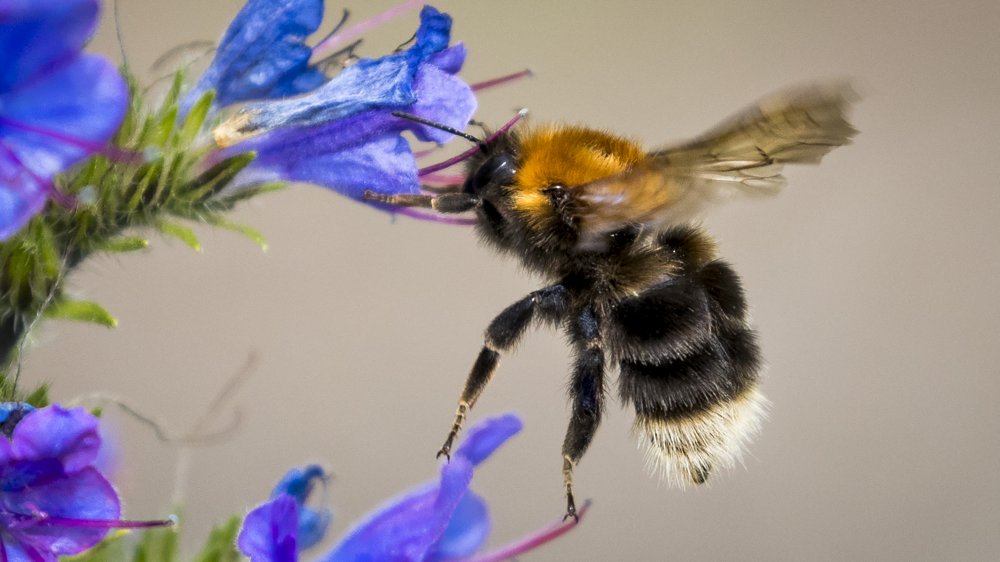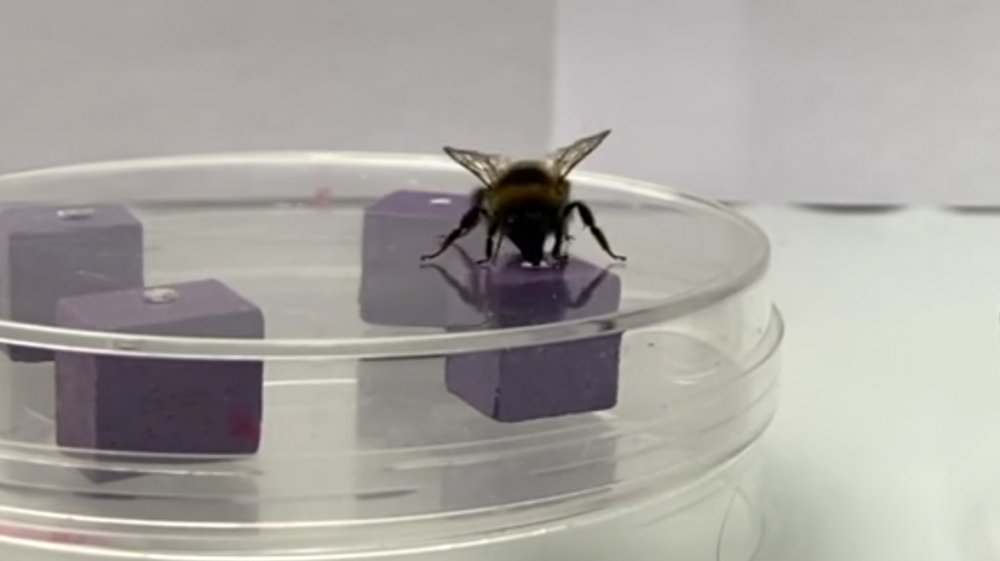Scientists Reveal Surprising New Bumblebee Skill
Remember when researchers taught bees to play soccer? If you don't, your memory has done you a grievous disservice, because those bees kicked butt at soccer and looked adorable to boot, proving that animals are more amazing than humans typically give them credit for. The metaphoric kicker of the story, according to Popular Science, was that these clever little honey bunches quickly learned the rules to a completely alien task, which experts didn't expect from such small-brained insects.
In 2020, bees had humans buzzing again about another surprising ability, raising the obvious question of whether bees are surprisingly smart or humans are stupidly presumptuous about them. Phys.org reports that researchers at Queen Mary University of London, where bees previously played soccer, and at Macquarie University in Sydney, demonstrated that "bumblebees can also find objects in the dark they've only seen before." What's the significance of this?
Bees don't bumble around in the dark
Phys.org explains that discerning objects in the dark requires the capacity to create mental images of that object using multiple senses. It's a crucial component of conscious awareness in humans, so obviously, a bee shouldn't be able to do it. What makes that obvious? Nothing, when you really think about it. But let's just humor scientists and say that an insect's tiny brain seems incapable of handling the majestic complexity of human perception, just like it couldn't handle the basics of soccer until someone gave bees a chance and they knocked soccer out of the park.
Much like that confusing baseball metaphor about soccer, humans have been in the wrong ballpark regarding bees' cognitive faculties. Scientists illustrated this with two experimental tasks. In one of them, bees received a sugar water reward for finding a cube or sphere that they could see but not touch. After becoming visually familiar with the objects they were freed to physically find them in the dark. Despite never having felt the object, the bees preferred the shapes associated with the reward. Bees also learned to do the reverse, feeling shapes in the dark and then having to identify them in the light without touching them.
It seems that humans are still in the dark about what sets them apart from other life forms. Maybe the human brain isn't as unique as people think. For a species that's spent so long flaunting the impressiveness of its intellect, that's gotta sting.

